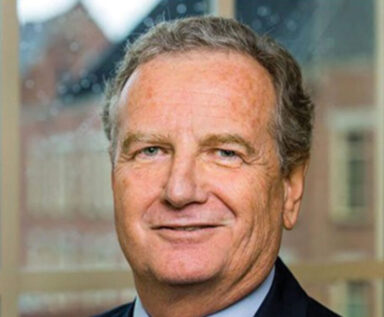Measles: A Physician’s Perspective
- By Trudie Mitschang
 GEORGE RUST, MD, MPH, joined the faculty of the Florida State University (FSU) College of Medicine in 2016. Prior to FSU, Dr. Rust spent 24 years of teaching, patient care, research and program development at the Morehouse School of Medicine (MSM). He was the founding director of the MSM faculty development program and founding director of the MSM National Center for Primary Care. He also serves as medical director for six local county public health departments and is the author of a 2025 measles fact sheet to help address this important public health concern.
GEORGE RUST, MD, MPH, joined the faculty of the Florida State University (FSU) College of Medicine in 2016. Prior to FSU, Dr. Rust spent 24 years of teaching, patient care, research and program development at the Morehouse School of Medicine (MSM). He was the founding director of the MSM faculty development program and founding director of the MSM National Center for Primary Care. He also serves as medical director for six local county public health departments and is the author of a 2025 measles fact sheet to help address this important public health concern.
BSTQ: What is your perspective on the recent measles resurgence?
Dr. Rust: There were years when locally acquired measles was quite rare in the United States, typically occurring when an unvaccinated American returned from an overseas trip to a country where measles is endemic. Now, we’re seeing more outbreaks in communities across America where there are pockets of children or adults who are unimmunized.
BSTQ: What do you say to people who believe measles is just a routine childhood illness?
Dr. Rust: Before the measles, mumps and rubella (MMR) vaccine, it’s true that most people were infected as children, but measles is far from a routine illness. Kids with measles get really sick. They get high fevers and a cough, and they feel awful for days. Many are hospitalized, and a few of them may die.
BSTQ: Do people vaccinated as children require boosters?
Dr. Rust: If you were born before 1957, you were most likely exposed as a child and have lifelong immunity. If you got the vaccine between 1963 and 1968, the vaccine you received may not have been the live vaccine and may not have conferred lifelong immunity. If you got only one dose as a child, you might need a second booster dose to achieve optimal immunity. Pregnant (or possibly pregnant) women and immunocompromised persons should not receive live virus vaccines.
BSTQ: How is measles transmitted?
Dr. Rust: Measles is highly contagious, and 90 percent of unvaccinated people who are exposed are likely to catch it. If you’re in the same room within two hours of when a measles patient was coughing, you are likely exposed. Because of the high rate of infection, measles outbreaks can spread exponentially in segments of the population that are unimmunized or not immune.
BSTQ: What is the best way to advise vaccine-hesitant parents?
Dr. Rust: Begin by asking and understanding the parents’ concerns. Show empathy, and emphasize how apparent it is that the parent cares for their child’s health. Address specific concerns with honest answers. By answering honestly about the real (and rare) adverse effects, you can hope for greater credibility when you assert there is no evidence of an association between measles and autism. It’s been looked at a dozen different ways, and it just isn’t real. Then shift the focus to understanding what it means for a child to actually have a case of measles, describing the symptoms and risks. The most important thing is to understand that this is not just a personal decision. This is a decision about all of us protecting each other.
BSTQ: Is it ever a good idea for parents to let a child get measles so they can be immune for life?
Dr. Rust: No! In addition to making your child feel really sick for days (high fever, cough and rash), a substantial proportion (roughly one in five children under age 5) will be hospitalized, often with pneumonia. There are also more deadly complications; perhaps one in a thousand children with measles will develop encephalitis with the potential for long-term brain damage, and one in three of those children may die. A far better alternative is to vaccinate your child. Side effects are minimal, complications are rare and 97 percent lifelong immunity will be achieved.
BSTQ: What can be done to prevent new outbreaks?
Dr. Rust: The good news is the MMR vaccine is very effective. Vaccinated people are 97 percent protected (93 percent after the first dose), and vaccines protect the community as well. If the immunization rate in a school or a community is at or above 95 percent, then herd immunity (community immunity) will work. But if immunization rates drop below the herd immunity threshold, outbreaks and spread can occur. That means we need to create a culture of community responsibility. We need to hold one another accountable for making sure we protect not just our own children, but each other’s children.